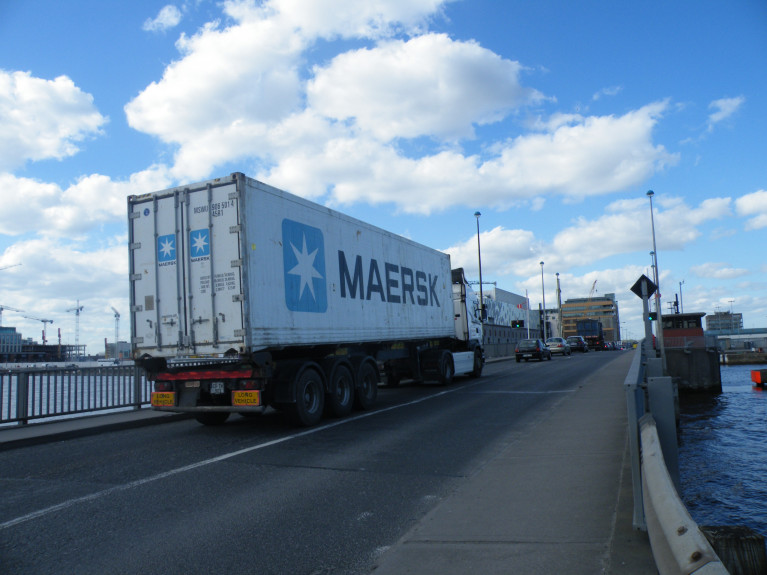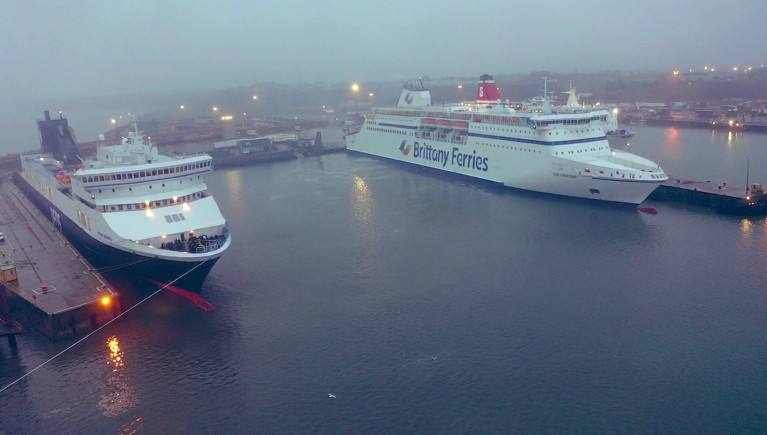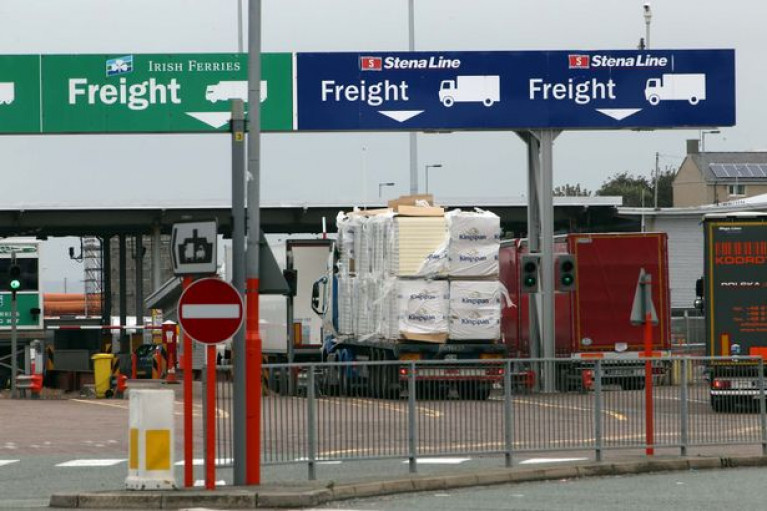Displaying items by tag: Hauliers
Irish Hauliers in Protest Warning Over Emission Cuts
RTE News reports that hauliers are threatening to hold protests over climate emission cuts to the transport sector and "astronomical costs".
The Irish Road Haulage Association will hold a members meeting in the next fortnight to discuss protests on the back of the Climate Change Advisory Council's emissions recommendations.
It said its members are already at breaking point with rising fuel costs, driver shortages and the Northern Ireland Protocol.
IRHA president Eugene Drennan said hauliers are "deeply concerned" about the impact a cut in emissions in the transport sector will have on the sector.
He said the cuts come as haulage companies face costs of a magnitude never seen before.
"We are deeply concerned about the emissions cuts. We have been labelled as a sector that is going to get a heavy cut," said Mr Drennan.
While acknowledging the level of sectoral cuts are yet to be revealed, he said his members "cannot take any more".
Click here for further reading.
Ireland-France Hauliers Will Need Negative Covid-19 test from Thursday
Hauliers travelling to France from Ireland will have to have evidence of a negative Covid-19 test from Thursday.
The development follows a decision of the French government.
As a result, the Irish Government says the testing protocol will apply to drivers travelling on any ferry leaving Ireland for France after 11pm tomorrow.
"The Department of Transport, in conjunction with Transport Infrastructure Ireland and Wexford County Council, is working extensively to finalise the opening of State-supported antigen testing facilities for hauliers," the department said in a statement.
"These tests will be made available free of charge at dedicated testing sites near the ports of Dublin and Rosslare."
RTE News has more on the development.
Insufficient ferry capacity may pose an issue, reports The Irish Times, on direct routes to mainland Europe if the key “landbridge” route through Britain becomes congested after Brexit, the haulage industry has warned.
Irish Road Haulage Association president Eugene Drennan told the Oireachtas transport committee that hauliers carrying time-sensitive loads such as food were concerned that existing and new direct ferry services to mainland Europe may be full after Brexit on January 1st.
“There is a big fear amongst hauliers who are going with all sorts of fresh produce - meat, chicken, poultry - that they won’t get a booking,” he said,
The committee heard from the haulage industry and shipping companies Brittany Ferries and DFDS about concerns over traffic congestion at Dublin Port arising from new border control checks on goods moving to and from Britain after Brexit comes into effect.
Aidan Coffey, Irish route director of DFDS, said there had been a significant number of pre-bookings on its new direct route between Rosslare and Dunkirk starting on January 2nd.
“The capacity will be outstripped quite early,” he said.
Brittany Ferries chief executive Christophe Mathieu said that the ferry company would consider increasing its services from Cork and Rosslare to France and Spain after Brexit if there is greater demand from freight companies to avoid the British landbridge.
For further reading including mitigating risks in transporting trade click here in addition critism of a recent IMDO report on shipping.
Hauliers Fear 'Mayhem' at Holyhead Port when Brexit Transition Ends
"Mayhem" at Holyhead port is what hauliers have claimed there will be when the Brexit transition period ends.
The north Wales ferryport is the second biggest "roll-on roll-off" port in the UK after Dover, carrying 1,200 lorries and trailers a day across the Irish Sea.
The Irish Road Haulage Association (IRHA) said the first six months of 2021 would be "terrible" as the port is not ready to cope with the change.
But the port's owner, Stena Line, has said the process would be smooth.
The IRHA remain unconvinced as the deadline to agree a new UK-EU deal approaches and the Brexit transition period ends on 31 December.
It is concerned border-ready pre-boarding IT systems have not been tested for outbound travel.
The European Union is planning to enforce border controls on the Irish side from 1 January but inbound lorries into Wales will not face any checks by UK authorities until July 2021.
For much more BBC News reports here.
#irishports - Speaking to The Irish Times, Jon Goodaker does not believe it is actually possible to have a no-deal Brexit. It would just lead to too many delays, too much chaos.
“There are too many variables,” said the logistics manager for construction materials company, Saint Gobain, which is based near the Border in Kingscourt, Co Cavan.
The man responsible for transporting products to and from the UK and Europe was one of 145 people at the Freight Transport Association Ireland’s conference in Enfield, Co Meath. The mood about Brexit was downbeat.
“Honestly, I don’t think they can do a no-deal Brexit,” he said, pointing to the complications flowing from the UK’s departure from the EU and blockages on a vital transit route for Irish companies to mainland Europe.
Right now, transporting goods across invisible EU-UK borders is so straightforward that Goodaker’s company can order a product from Europe on day one and have it delivered to Cavan and onto a customer on day three.
“With delays from Brexit, that could spread out to day four or day five,” he said.
For further reading more on these developments, click here.


































































